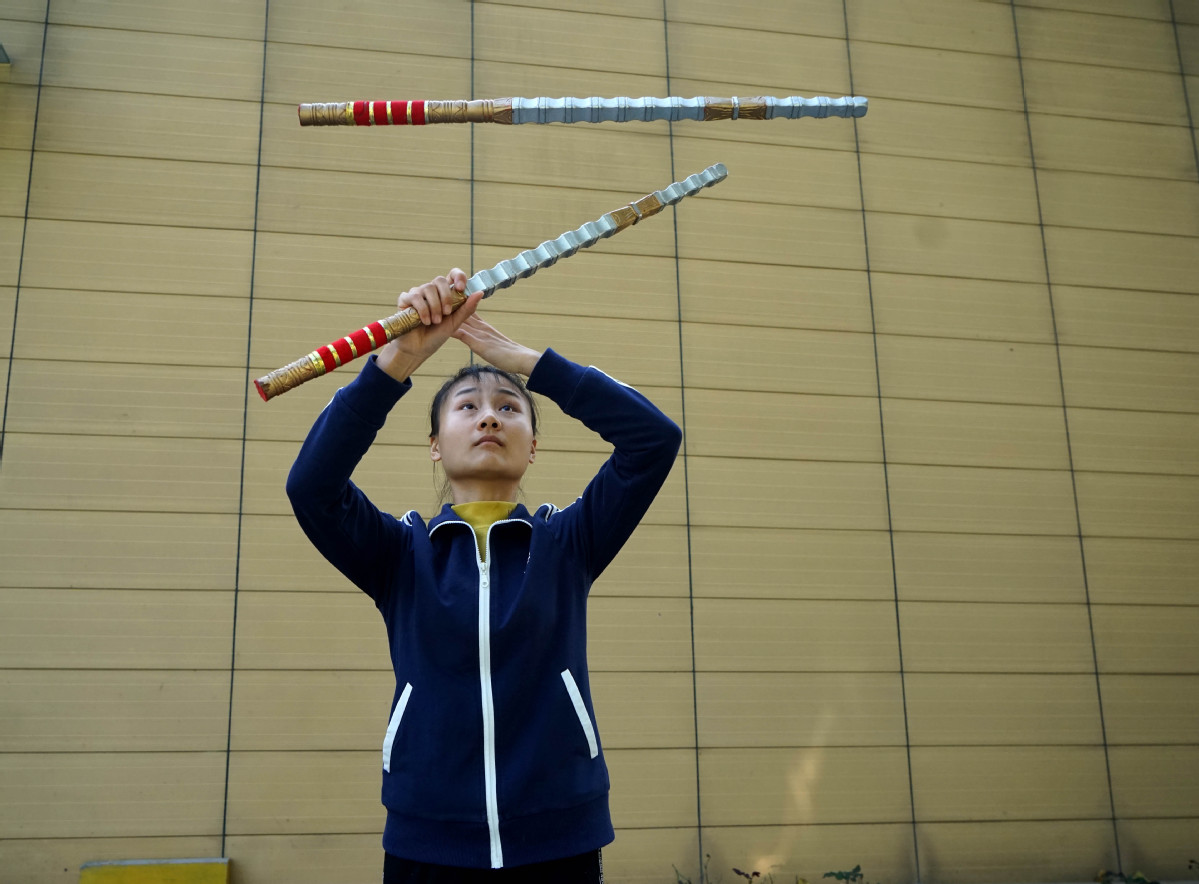Traditional opera strikes new note in Shaanxi
 0 Comment(s)
0 Comment(s) Print
Print E-mail China Daily, November 11, 2020
E-mail China Daily, November 11, 2020
Heritage listing

In 2006, Qinqiang Opera, which is performed in the Shaanxi dialect and known for its intense rhythm and high-pitched singing, was listed as a National Intangible Cultural Heritage.
The art form, which dates to the Qin Dynasty (221-206 BC), is widely believed to be the first type of Chinese Opera. Developed during the Ming Dynasty (1368-1644), it mainly found popularity in Shaanxi and Gansu provinces.
Qinqiang Opera performers not only need to master the rhythm and high-pitched singing, they also have to use their bodies to express their characters' moods in different situations.
The Yisu Art Troupe's rehearsal room is a hive of activity.
Every day at 8 am, students begin their basic skills training. Starting with singing practice, 19 young hopefuls exercise by kicking their legs and performing somersaults, before running around a field.
The session lasts for about an hour. However, for He Yuxin, 19, the youngest Qinqiang Opera student with the troupe, another two hours of training has just started.
Influenced by her grandparents, the teenager has learned opera at home since childhood. When she was 3, she hummed part of an opera for the first time, before being sent by her family to study Qinqiang Opera at the Shaanxi Art School in Xi'an.
She was hired by the Yisu Art Troupe in 2015, when it decided to recruit new members to pass on the art form. Previously playing qingyi, or graceful female roles, after joining the group, He switched to wudan-brave and skilled roles.
"Two or three years ago, my teacher at Yisu Grand Theater said that as I was still young, I could master more martial roles. As a result, I started learning skills to play wudan parts," said He, who practices with swords, whips and spears every day.

Like He, most Qinqiang Opera performers with the troupe began their training at a young age, with early morning exercises usually accompanying them throughout their lives.
Qu Peng, a skilled performer specializing in laosheng (elderly male roles) and xusheng (roles for middle-aged males requiring beards), and who starred in a recent Yisushe production, began learning Qinqiang Opera when he was 13.
In addition to basic skills, every performer needs to practice daily, Qu said that by following in the footsteps of renowned artists with the Yisu Art Troupe, he can master the essence of Qinqiang Opera.
"Some retired artists who specialized in the art form occasionally visit the courtyard at the Yisu Grand Theater to take us through the operas scene by scene," he said. "Once, when I was not in the theater, they were anxious to know where I was."
The 40-year-old, now starring in a newly written Qinqiang Opera as Li Bai, a renowned poet during the Tang Dynasty (618-907), responds to constructive criticism during each rehearsal, not only from the director, but also from performers and musicians.
Qu, a Shaanxi native, said: "There is always someone to learn from. One director told me how my singing needed to be adjusted. When the musicians feel they have become disconnected from my singing, they immediately point this out during each rehearsal.
"It's a process of mutual cooperation through communication, and just because I'm the actor, this does not mean I'm right every time."






Go to Forum >>0 Comment(s)